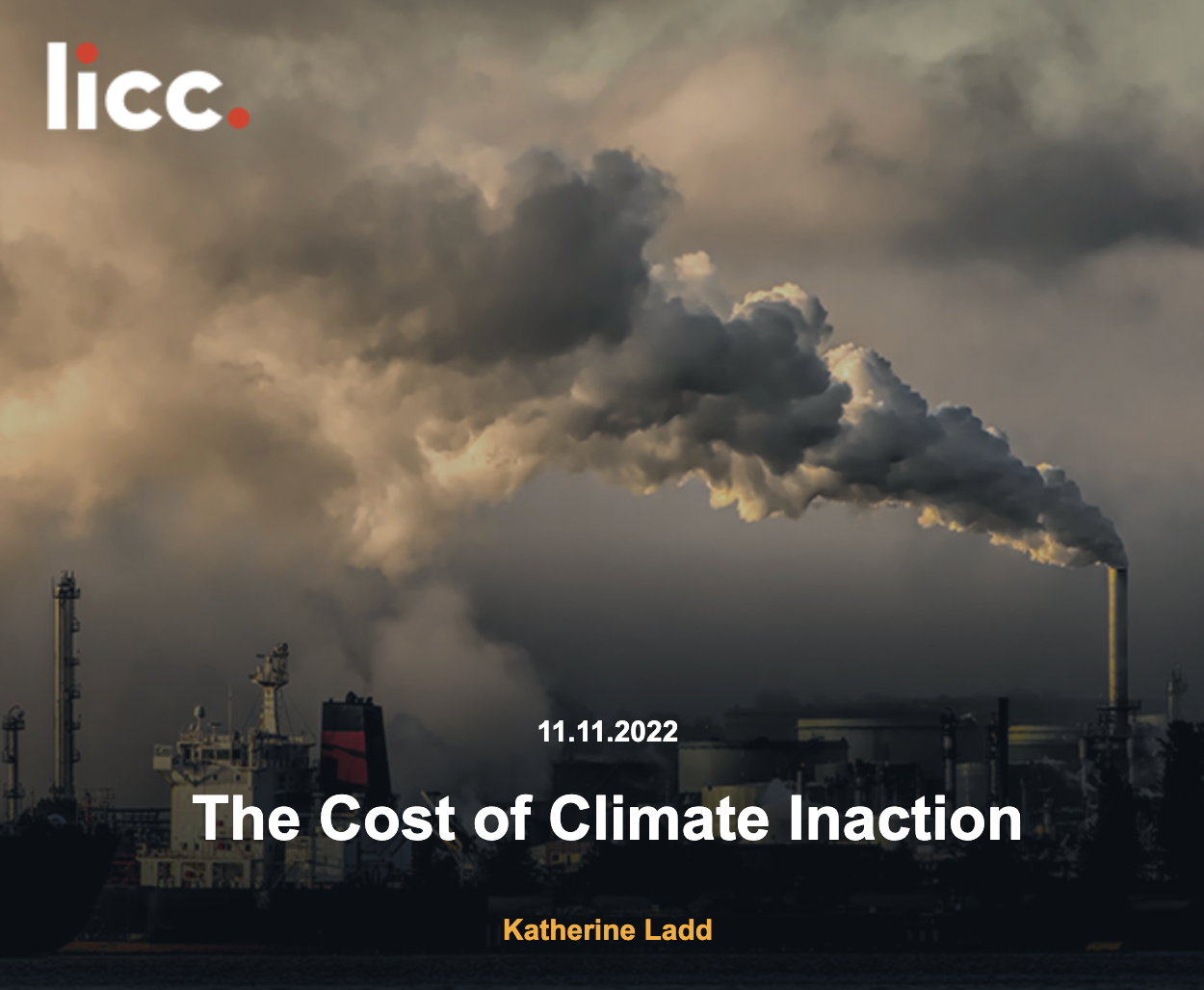The Cost of Climate Inaction. By Katherine Ladd.

‘We are on a highway to climate hell with our foot still on the accelerator.’
So warned UN secretary-general António Guterres as he opened the COP27 climate summit in Egypt, following a year of climate-related disasters and broken temperature records.
Top of the agenda is climate-vulnerable nations requesting funding to address the severe impacts of climate change already felt in their countries – specifically payments to cover ‘loss and damage’.
Climate reparations are a complex area, and Denmark and Scotland have become notable exceptions in pledging money this week. Reparations have been described by some as a political non-starter, given leaders’ reluctance to bear responsibility for the decisions of previous generations, the difficulty of precisely quantifying increased risk, and the changing landscape of cumulative emissions around the world. Some of the nations most vulnerable to climate change are also reliant on fossil fuels themselves.
But climate impacts continue to accelerate, from extended drought in East Africa to unprecedented floods in Pakistan. And wealthier nations – who are undeniably most to blame for climate change – are yet to fulfil their 2009 pledge to deliver $100 billion a year from 2020 in climate finance to lower-income countries and communities.
In the book of Micah, God brings his ‘lawsuit’ against his people, indicting Samaria and Jerusalem for sins which include idolatry, the failure of civil and religious leadership, and opportunistic oppression of vulnerable neighbours.
As the foundations of the earth bear witness, God rejects ritualistic offerings and empty repentance, telling Israel what true worship is:
‘He has shown you what is good….
To act justly and to love mercy
and to walk humbly with your God.’
Restorative justice and mercy are not optional extras for those who know God but what he requires for right living. Christians are called to sacrificial service, out of love for our neighbours, which brings about restoration and the flourishing of all.
And so restorative justice and mercy should shape our discussions about climate finance, and inspire our action, whether that’s committing to learning more from those worst impacted, calling on our government to back the creation of an international fund, or facilitating action within our church, workplace, or local community.
A single conference won’t deliver climate justice, but COP27 could bring about significant steps. So let’s continue to act in our own sphere of influence, hold leaders accountable for theirs, and keep our hearts centred on him whose justice and mercy must prompt our own.
—
Katherine Ladd
Katherine works in communications for the Civil Service and attends Christ Church Balham.
You can keep up to date with COP27 with daily emails from Christian Climate Observers Program (CCOP) 2022, a non-denominational Christian presence at the climate summit, and NGOs such as Tearfund and Christian Aid have dedicated resources to help you respond.


